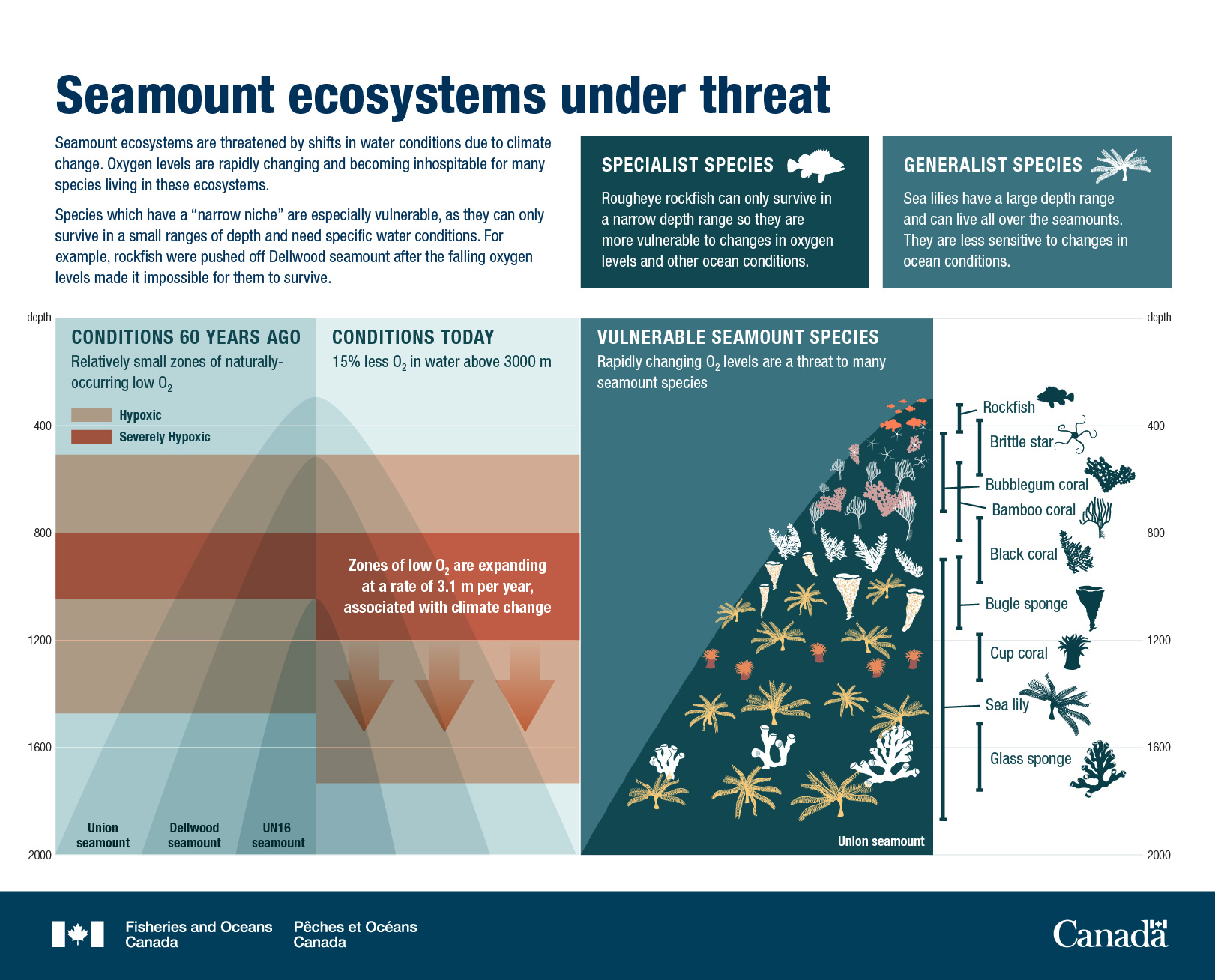Canada’s Oceans Now: Pacific Ecosystems, 2021 - Seamount ecosystems under threat

Description: Canada’s Oceans Now: Pacific Ecosystems, 2021 - Seamount ecosystems under threat
Infographic showing the oxygen minimum zone and how it has expanded and is impacting seamount ecosystems. A generic seamount of multiple sizes shows an oxygen minimum zone 60 years ago on the left, and the conditions today on the right. The graphic shows a red zone growing deeper and wider, indicating a growing oxygen minimum zone that is hypoxic and severely hypoxic. On the right there is a simple seamount showing areas where species live based on depth. Rockfish are at shallower depths and various coral and sponge species live deeper.
Seamount ecosystems under threat
Seamount ecosystems are threatened by shifts in water conditions due to climate change. Oxygen levels are rapidly changing and becoming inhospitable for many species living in these ecosystems.
Species which have a “narrow niche” are especially vulnerable, as they can only survive in a small ranges of depth and need specific water conditions. For example, rockfish were pushed off Dellwood seamount after the falling oxygen levels made it impossible for them to survive.
Conditions 60 years ago
- Relatively small zones of naturally occurring low O2
Hypoxic < 1ml/l
Severely Hypoxic < 0.5 ml/l
Conditions today
- 15% less O2 in water above 3000 meters
Zones of low O2 are expanding at a rate of 3.1 meters per year, associated with climate change
Vulnerable seamount species
- Rapidly changing O2 levels are a threat to many seamount species
Specialist species
Rougheye rockfish can only survive in a narrow depth range so they are more vulnerable to changes in oxygen levels and other ocean conditions.
Generalist species
Sea lilies have a large depth range and can live all over the seamounts. They are less sensitive to changes in ocean conditions.
Related links
- Date modified: